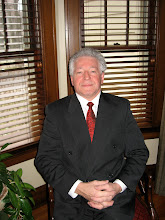Simon Dawson / Bloomberg News file photo
The snow capped peaks of the Alborz mountain range stand beyond buildings and rooftops on the city skyline in Iran’s capital of Tehran. There’s a justified temptation to view elections in the Islamic Republic with a huge amount of skepticism, but these elections still reveal genuine political divides within the country and a modicum of pluralism.
ANALYSIS: IRAN’S ELECTION
An undemocratic system where the votes still matter
By Ishaan Tharoor / The Washington Post
Iran will hold national elections Friday, with the country’s voters set to cast their ballots for representatives in two important political bodies: the Majles — or the 290-seat Iranian parliament — and the Assembly of Experts, the chamber of clerics which technically supervises the country’s supreme leader, the 77-year-old Ayatollah Ali Khamenei.
There’s a justified temptation to view elections in the Islamic Republic with a huge amount of skepticism.
Iran’s theocratic regime, which has now been in place for close to four decades, is nowhere near a model democracy.
Its closed political system has in recent years kept out real reformist candidates from contesting seats. A repressive state continues to jail dissidents and stifle dissent. In the eyes of some observers, any vote is an exercise in rubber-stamping or window-washing.
Yet these elections still reveal genuine political divides within the country and a modicum of pluralism. More than 6,200 candidates, including almost 600 women, are running for parliament, while 161 mostly elderly clerics are running for the 88 spots on the all-male Assembly of Experts.
“No matter how undemocratic and how compromised the system is, there’s no questions the elections matter,” said Hooman Majd, an analyst of Iranian affairs and an author of numerous books on the country. “They matter in terms who comes to power, who wields it and how much they can wield.”
It’s a crucial test for Iran’s President Hassan Rouhani, whose own job is on the line next year. He contested and won the presidency in 2013 elections as a self-styled moderate and went on to champion the nuclear deal inked between Tehran and world powers.
The pact has won Iran much-needed relief from sanctions and remains hugely popular among the Iranian public. But most people in the country have yet to feel the economic dividend of Rouhani’s diplomatic efforts. And conservatives and hard-liners, who dominate the Majles and other bodies of state, are wary of any further attempts toward rapprochement with the West, in particular the United States.
“These are the most consequential nonpresidential elections in Iran at least for the last two decades,” said Trita Parsi, president of the National Iranian American Council, a Washington-based organization that favors the improvement of ties between the U.S. and Iran. “They are essentially a referendum on Rouhani and if he gets a parliament that’s less conservative, he can push through reforms.”
But, Parsi adds, “expectations are extremely high” for Rouhani and “on other issues beyond foreign policy and the lifting of sanctions and the nuclear deal he’s not scoring that well.” The Rouhani administration has had to contend with tremendous levels of domestic opposition at home in recent months.
“These elections will not change Iran’s foreign policy, nor will they jeopardize the nuclear deal,” writes Al-Monitor’s Arash Karami. “A cooperative parliament can, however, allow Rouhani’s ministers to focus on the difficult challenges ahead of them rather than being constantly summoned to parliament, as they have been in record numbers.”
The other inescapable impediment for those seeking genuine political reform in Iran is the simple fact that hundreds of reformist candidates were disqualified by Iran’s theocratic Guardian Council before the election campaigns even began.
This included a grandson of the Islamic Republic’s founder, Ayatollah Ruhollah Khomeini, who was barred from contesting a spot on the Assembly of Experts likely for his reformist leanings. The decision was deeply symbolic, claim experts, and a clear indication of the extent to which Khamenei and his allies, including leading elements with Iran’s powerful Revolutionary Guards, intend to consolidate their grip on Iranian politics.
For most of its history since Iran’s 1979 revolution, the Assembly has been a somewhat obscure body performing a rather cursory function. But with Khamenei allegedly ailing, those filling its seats for the next eight-year term take on a far more conspicuous and potentially important role in shaping the future of the Islamic Republic.
The disqualifications of the vast majority of reformist candidates, argues Karim Sadjadpour, a senior associate at the Carnegie Endowment for International Peace, were a “reflection of the fact that the supreme leader and senior cadres of (the Revolutionary Guards) approved the nuclear deal … driven by economic expediency, not a desire to change the ideological principles of the revolution.”
As he puts it, “the ideological spectrum” of those likely to win office in parliament “ranges from pitch black to dark gray.”
“If you had a free and fair election and anyone was permitted to run, (candidates) with a more progressive, internationalist agenda would win overwhelmingly,” said Sadjadpour.
But that’s not what you have now. And that may explain the prospect of voter apathy among young Iranians.
Those in Iran’s reformist camp are urging their supporters to vote for the more moderate “lists” of candidates. Former Iranian President Mohammad Khatami, a reformist now subject to an official media ban, managed to post messages on YouTube and through the Telegram phone app calling on voters to take the “second step” following Rouhani’s 2013 election.
The polls will be a barometer of how the Iranian public, particularly youth, view the potential for change in the country. Perhaps even more than the outcome of the election, “the vote count is really what’s important,” said Majd.
---{-=@
HICKOK




No comments:
Post a Comment